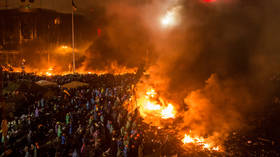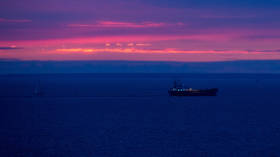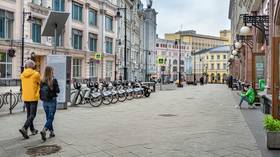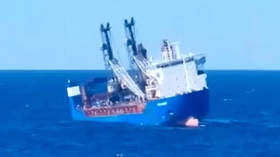Germany’s ‘complete blockade’ of Russian banks excludes gas payments
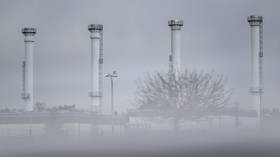
Germany’s finance minister said on Friday that EU sanctions over Russia’s military operation in Ukraine had led to Russian banks being nearly completely blocked in his country. The only transactions still allowed were those by German companies to pay for Russian gas, Christian Lindner said.
“There is already a complete blockade of Russian banks. Thus, business traffic with Russian enterprises is practically blocked. In some cases, transactions are still possible. For example, to pay for gas supplies, so that German companies can make transfers to their subsidiaries in Russia,” Lindner said.
In a video posted on the German Finance Ministry Twitter account on Friday, Lindner added that Germany had secured energy supplies and was prepared for the possible consequences of the EU sanctions against Russia. He admitted, however, that the government is currently unsure what the exact consequences of the sanctions would be, and could result in even higher inflation, he said.
According to Lindner, the EU could impose further sanctions on Russia but the bloc had to make sure they impact the Russian economy specifically. The German government has been reported as saying on Friday that no sanctions against Russia’s energy sector were planned, as such measures could hurt Berlin more than Moscow.
The EU introduced sweeping sanctions against Russia earlier this week, targeting the country’s banking sector, as well as technology and airline industries. Europe’s energy sector faces some uncertainty in the wake of the Ukraine crisis as 40% of the bloc’s natural gas supplies come from Russia.
Earlier this week, Berlin suspended the Nord Stream 2 project – a pipeline that was intended to increase Russian gas deliveries to the EU. Germany’s Foreign Affairs Committee said on Thursday that new gas contracts with Russia were inconceivable.
Gas prices in Europe reacted to the developments by climbing as high as $1,500 per thousand cubic meters on Thursday. The German Energy Ministry said on Friday that it had begun to secure alternative sources of coal imports, as half of its coal supplies come from Russia.
For more stories on economy & finance visit RT's business section
